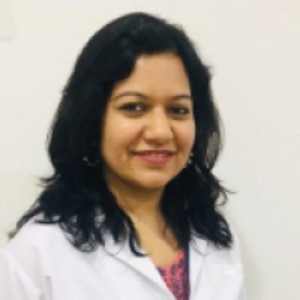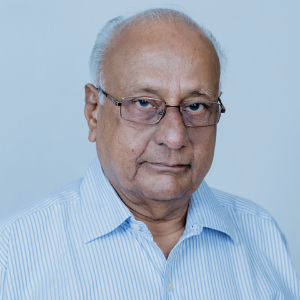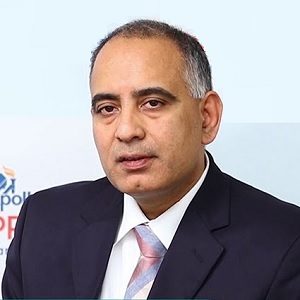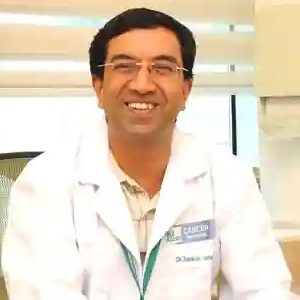Best Doctors in India for Adenocarcinoma Treatment
- Medical Oncologist, Gurugram, India
- Over 20 years’ experience
Profile Highlights:
- Dr. Randeep Singh has trained extensively in managing cancer patients at the prestigious Tata Memorial Hospital, Mumbai.
- After spending over 20 years in this field, he has a vast experience in breast, lung, and gastrointestinal cancers.
- Throughout his career, Dr. Randeep Singh has had over 40 publications in national and international journals.
- He has also attended and presented various scientific papers in national and international journals.
- Surgical Oncologist, Gurugram, India
- Over 10 years’ experience
Profile Highlights:
- Dr. Shilpi Sharma is a highly experienced surgeon and oncologist who has previously worked in prestigious institutions such as Tata Memorial Hospital, and National Cancer Institute.
- Throughout her career, she has conducted various high-quality research in the field of head and neck cancers. Dr. Shilpi Sharma has also been part of various randomized and nonrandomized trials and has also been involved in clinical and translational research.
- She is also a member of ICMR guideline committee which formulated the ICMR guidelines on tongue cancers.
- Medical Oncologist, Chennai, India
- Over 40 years’ experience
Profile Highlights:
- Dr. Bellarmine Vincent Lawrence is a well-known Medical Oncologist in South India with a specialization in the treatment of breast cancers.
- He provides overall both pre and post-operative treatment of breast cancer that includes diagnostic, therapeutic as well as palliative care.
- He also provides services for other types of cancers including blood cancer and does procedures like Chemotherapy for the treatment and biopsies for the detection of cancer.
- Medical Oncologist and BMT Specialist, Chennai, India
- Over 25 years’ experience
Profile Highlights:
- Dr. T. Raja is a Medical Oncologist from the Tamil Nadu state with 25 years of know-how in this field.
- He has proficiency in Cancer Screening, Chemotherapy, PICC Line Insertion, Bone Marrow Transplantation, Stem Cell Transplantation, Pap collection, lymphoma, Renal Cell Cancer management, and Head and Neck Tumor.
- Dr. Raja was the Principal Investigator for several clinical studies, a published author for journals, and a teacher.
- Medical Oncologist, Chennai, India
- Over 28 years’ experience
Profile Highlights:
- Dr. Sankar Srinivasan is one of the top Medical Oncologists in India with proficiency in cancer management for about 28 years.
- He got certified in Internal Medicine, Medical Oncology, and Hematology from American Board to enhance his skills.
- Dr. Srinivasan is placed in the best 10% of the Hematologists boards.
- He is an active member of several International Medical Association Boards.
Best Hospitals in India for Adenocarcinoma Treatment
CARE Hospitals, Hyderabad
- City: Hyderabad, India
Hospital Highlights:
- CARE Hospitals were established in the year 2000, by CARE Group.
- The multispecialty hospital has 435 beds, including 120 critical care beds, with an annual inflow of 180000 outpatients and 16,000 in-patients.
- The hospital provides specialty medical services in Cardiology, Cardiothoracic Surgery, Pediatric Cardiology, Pediatric Cardiothoracic Surgery, Neurology, Neurosurgery, Nephrology, and Urology.
- The hospital has the first dual source, 128 slice CT scanner (for high precision cardiac imaging) – the first of its kind in south India.
- The hospital offers a wide range of accommodation facilities for the convenience of its varied patient base, ranging from general wards to super deluxe rooms.
Fortis Hiranandani Hospital, Mumbai
- City: Mumbai, India
Hospital Highlights:
- Fortis Hiranandani hospital was established in 2007.
- The hospital is an advanced tertiary care, multi-specialty hospital equipped with 149 beds.
- The hospital is equipped with a super ICU to provide emergency medical care to critically ill patients.
- The hospital is NABH accredited.
- The critical care facility in the hospital is augmented with the state-of-the-art facilities that facilitate speedier diagnosis and efficient monitoring.
- The hospital provides specialty medical services in cardiology, orthopedic science, pediatric science, neurology, diabetic care, urology, nephrology, ENT, obstetrics, gynecology, cosmetic surgery, bariatric surgery, neuro and spine care.
Fortis Hospital, Anandpur, Kolkata
- City: Kolkata, India
Hospital Highlights:
- Fortis Hospital, Anandapur, Kolkata is a world-class super-speciality equipped with the latest technologies in the medical world.
- The hospital is NABH accredited.
- This state-of-the-art facility specializes in cardiology and cardiac surgery, urology, nephrology, neurosciences, orthopaedics, digestive care, emergency care and critical care.
- The hospital, governed by integrated Building Management System (IBMS), has a pneumatic chute system, for quick vertical and horizontal transportation between floors, facilitating speedy transfer of patient specimens, documents, reports, and medicines to the concerned departments.
- The hospital also has a nephrology department with over 28 advanced dialysis units.
Fortis Hospital Banerghatta, Bengaluru
- City: Bengaluru, India
Hospital Highlights:
- Fortis Hospital Bannerghatta, Bengaluru was established in 2006.
- The hospital is a 276 bedded multi-specialty tertiary care facility.
- The hospital specializes in cutting-edge medical technology and dedicated patient care services.
- The hospital is equipped with state-of-the-art technologies like trans-radial angioplasty, trans-abdominal cardiac surgery, and computerized TKR navigation surgery.
- The hospital provides specialty medical services in cardiology, cardiac surgery, orthopedics, neurology, neuro-surgery, GI, and Minimal Access Surgery (MAS).
Gleneagles Global Hospital, Parel, Mumbai
- City: Mumbai, India
Hospital Highlights:
- Gleneagles Global Hospital The 450-bed facility comprises of 17-stories, housing state-of-the-art infrastructure, and advanced medical care facilities.
- The hospital offers end-to-end clinical, surgical, and diagnostic services. It is equipped with a team of eminent medical professionals aided by qualified nurses and medical staff
- The Hospital offers advanced Endoscopic procedures, Hepatobiliary and Liver Surgeries, Surgical and Medical Gastroenterology, Bariatric Surgery, and Robotic surgery.
- The hospital is a center of excellence for Orthopedics, Joint Replacement, Knee Replacement, and Hip Replacement surgery.
Jaypee Hospital, Noida
- City: Noida, India
Hospital Highlights:
- Jaypee Hospital is the flagship hospital of the Jaypee Group.
- This hospital has commissioned 525 beds in the first phase and has been planned and designed as a 1200 bedded multi-specialty facility.
- It holds the accreditation of the NABH and NABL.
- The hospital has state-of-the-art infrastructure equipped with the latest technologies and modern equipment like 64 Slice PET CT, Dual Head 6 Slice SPECT CT, Gamma Camera, and Da Vinci Robotic Surgery for comprehensive robotic surgical solutions.
- It has special Centers dedicated to the major specialties to provide hassle-free and high-quality clinical care.
Manipal Hospital, Dwarka, Delhi
- City: New Delhi, India
Hospital Highlights:
- Manipal Hospitals, Dwarka, is a super-specialty hospital in Dwarka, New Delhi, which is a part of Manipal Hospitals Group.
- The hospital aims to provide the best treatment on par with international standards at a fraction of the cost.
- Equipped with 380 beds, the hospital is also one of the new age hospitals which are equipped fully with state-of-the-art infrastructure, cutting-edge technology as well as the latest and advanced clinical practices. The hospital also has 13 modular Operation theatres with 118 beds which are solely meant for critical care.
- The hospital comprises internationally acclaimed doctors and highly professional and experienced hospital and medical staff who are able to provide preventive, therapeutic, and diagnostic services all under one roof.
Pushpawati Singhania Hospital & Research Institute, New Delhi
- City: New Delhi, India
Hospital Highlights:
- Established in 1996, Pushpawati Singhania Research Institute is one of the top hospitals in the NCR region, as well as one of the top facilities in India for gastroenterology. The hospital is one of South Asia’s first institutes in medical and surgical treatment for diseases related to digestion.
- The hospital is equipped with state-of-the art facilities coupled with the latest equipment as well as renowned consultants from various parts of India as well as other parts of the world.
W Pratiksha Hospital, Gurgaon
- City: Gurugram, India
Hospital Highlights:
- W Pratiksha Hospital, Gurugram, is one of the best hospitals in the NCR region. It is also a top hospital in India for IVF. Since its inception, the hospital has performed over 5500 successful IVFs. The hospital also specializes in gynecology.
- With over 20 years of experience in providing quality healthcare, the hospital is known as one of the most trusted and valued health providers in India.
- Equipped with world-class medical facilities and advanced technology, the hospital’s doctors and clinicians also have a track record of delivering excellent results. The hospital is also known for focusing on preventive well-being as much as on curative treatment.
- The hospital has earned the trust of its patients, by providing the best available treatments at affordable costs.
Narayana Superspeciality Hospital, Gurugram
- City: Gurugram, India
Hospital Highlights:
- Situated near DLF Cyber City, Gurugram, Narayana Superspecialty Hospital is one of the top medical facilities in the Delhi NCR region, catering to the needs of the people. Known for its commitment to quality medical care and patient service, the hospital is a state-of-the-art facility with planned and well-equipped sections, which includes a spacious OPD area as well as comfortable patient rooms.
- It is the closest super-specialty hospital from Indira Gandhi International Airport towards Gurugram, and also the nearest super specialty hospital from DLF Cyber City. It is also close to major residential areas in Gurugram.
- It is part of the renowned Narayana Health Group. Established in 2000, by Dr. Devi Shetty, a renowned cardiac surgeon, it has grown to be one fo India’s leading healthcare groups.
ADENOCACINOMA
Adenocarcinoma is a type of cancer that begins in the gland that lines the insides of one of the organs in the body. This condition can occur in several parts such as your colon, breasts, esophagus, pancreas, lungs, or prostate.
If you are having this condition, there are several treatments that you can consider to slow or stop this disease, such as chemotherapy or surgery. Treatment, as well as survival rates, generally depend on the tumor’s location, stage, size as well as the overall health of an individual.
Symptoms
This condition may occur in several areas of the body, and there is a long list of symptoms.
Lungs : Adenocarcinoma in the lungs can lead to:
- Coughing
- Hoarseness
- Weight loss
- Weakness
- Exhaustion
- Bloody mucus
Breast : Adenocarcinoma in the breast can show up as a lump or unusual growth.
Prostate : In its early stages, prostate cancer shows no symptoms. However, at a later stage, an adenocarcinoma can lead to any of the following:
- Pain when urinating
- Issues with bladder control
- Painful ejaculation
- More frequent urges to urinate at night
- Blood in the semen
Pancreas : Adenocarcinoma in the pancreas can cause:
- Unintended weight loss
- Pain in the back and stomach
- Oily, pale stools
- Itchy skin
Colon : If adenocarcinoma develops in the colon, the following symptoms are likely to occur:
- A sensation that the bowels are full
- Bloody stool
- Rectal bleeding
- Pain in the stomach
- Unexplained weight loss
Brain or skull : If adenocarcinoma develops in the skull, it can lead to the following symptoms:
- Headaches
- Nausea
- Vomiting
- Blurred vision
- Changes in one’s personality
- Unusual sensations in the legs or arms
- Changes in thinking
- Seizures
Causes & risk factors
Adenocarcinomas can develop due to several different reasons. Scientists are still unsure why adenocarcinomas develop in some people but not others.
However, some clear links can be seen between some of the risk factors. The following list will help you know about the risk factors that can lead cancers to develop as well as adenocarcinomas.
Risk factors common to many of these cancers also include a family history of cancer as well as exposure to radiation therapy previously.
Lungs : Smoking tobacco products or being around second-hand smoke are known to be the main risk factors for lung adenocarcinoma.
Some of the other main risk factors include the following:
- Exposure to any harmful toxins in work or home environments
- Having undergone radiation therapy previously, especially in the lungs
Prostate : Several confirmed risk factors for prostate cancers exist, which can also include adenocarcinoma. They generally include the following:
- Age, as the risk of this condition significantly increases once a man reaches the age of 50
- Having a close relative who is suffering from prostate cancer, may double the risk of developing it
- Race and ethnicity, as prostate cancer is known to be more common in men of African American and Caribbean ethnicity
- Geography, as prostate cancer is known to be more common in North America, Australia, northern Europe, as well as the Caribbean
Breasts : The main risk factors for breast adenocarcinoma include the following:
- Sex, as women are more likely to get breast cancer as compared to men
- Age, since the risk is more significant in older adults
- Taking hormone replacement therapy
- Family history as well as genetics
Pancreas : Risk factors for having include adenocarcinoma in the pancreas include:
- Exposure to certain harmful chemicals in metalwork and dry cleaning
- Smoking
- Overweight and obesity
- Age, as the risk increases as age advances
- Gender, as the condition occurs more in men than women
Brain : Some factors which may the risk of adenocarcinoma spreading to the brain include radiation exposure.
A family history of other diseases linked to cancer, such as Li-Fraumeni Syndrome, might increase the risk of brain cancer as well. However, adenocarcinoma is known to commonly spread to the brain from another location.
Colon : Cancers of the colon and rectum, including adenocarcinoma, have several risk factors that may promote their development. These can include the following:
- Being overweight or obesity
- Having sedentary lifestyle
- Regularly consuming too much alcohol
- History of irritable bowel disease
- Having type 2 diabetes
- A diet high in red or processed meats
- Smoking tobacco
Diagnosis
In order to accurately diagnose your condition, your doctor might need to perform a few tests.
Your diagnosis will most likely begin with an examination. A doctor will need to take an individual’s comprehensive medical history.
Next, the doctor is likely going to ask questions about symptoms and any possible risk factors, such as smoking. He/she might also ask whether other family members have or have had adenocarcinoma.
Several tests may assist a doctor in diagnosing the condition. It may also be needed to carry out multiple tests.
Tests may include one or more of the following options:
Biopsy
During this procedure, the healthcare professional is going to remove a small sample of your tissue. Then he/she will send this to a laboratory for testing.
The location of the adenocarcinoma and the amount of tissue that is required is going to shape the biopsy method. A thin or wide needle is going to be used to obtain a sample. Others, such as colonic adenocarcinomas, can require a technique, such as an endoscopy, which can be more invasive.
In an endoscopy, a healthcare professional will insert a tube into the area showing the symptoms. It is flexible and lighted, and also has a camera attached to it. A doctor might also collect a tissue sample during this procedure for further analysis.
A biopsy can help to indicate whether a tissue sample is cancerous and if the cancer originated at the biopsied site or has metastasized from a different part of the body.
Imaging scans
Blood tests
Blood tests can measure changes in blood cells which may suggest cancer. Some adenocarcinomas and other cancers can circulate certain chemicals in the blood, which can be detected during a blood test.
For example, if levels of prostate-specific antigen are changing, it can indicate prostate adenocarcinoma.
Treatment
Treatment for adenocarcinoma is going to vary depending on the location. Treatment generally includes the following methods:






















